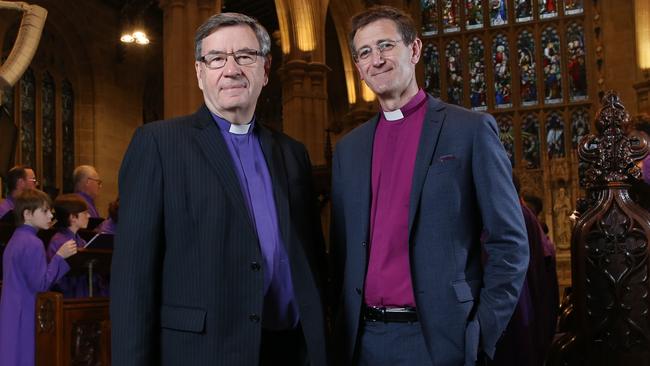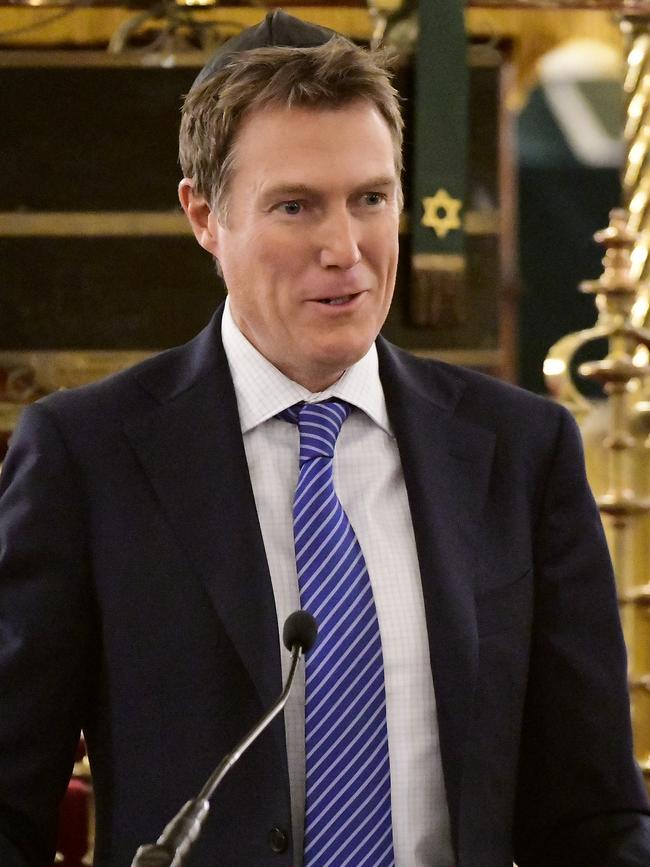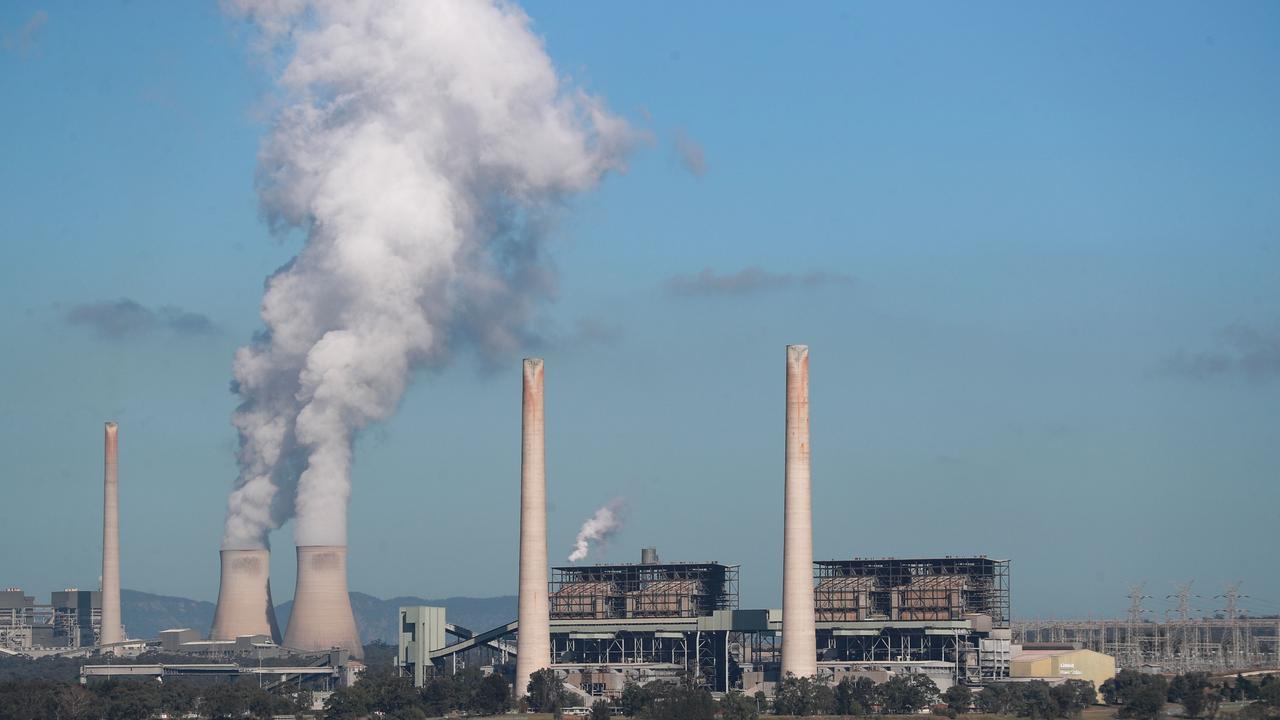Churches mount revolt on draft laws
Religious leaders demand the PM provide extra safeguards after proposed laws were unveiled.

Religious leaders are demanding Scott Morrison provide them with extra safeguards after the government unveiled proposed laws shielding religious institutions from discrimination claims and protecting workers who express their beliefs from being sacked.
MORE: SSM architects back bill | Sheridan: Common sense means drawing line in middle | Merritt: Kudos deserved, but uncertainties need resolution | Doctors fear state law may veto their objections | Bid to tackle corporate culture | Faith leaders vexed by lack of consultation
Attorney-General Christian Porter came under attack from religious groups yesterday over a “lack of consultation” and concerns that the draft religious freedom bill would not deliver an effective legal defence in faith-based discrimination cases.
Releasing the draft legislation at the Great Synagogue in Sydney yesterday, Mr Porter said the proposed act would not create a “positive right to freedom of religion”. Instead it would “make it unlawful to discriminate on the basis of religious belief or activity in key areas of public life”.
He indicated he would work “constructively with interested parties” before the bill enters parliament in October after Catholic and other Christian groups boycotted his speech yesterday.
Some senior religious leaders expressed concern over what they described as “holes” in the proposed legislation, pointing to the fact the bill would not override laws in state jurisdictions or prevent some religious doctors from being compelled to refer on patients to receive abortions.
While the government has included an “Israel Folau” provision in its legislation, aimed at preventing staff at large companies from being dismissed for expressing religious views outside the workplace, religious leaders warned the protection was too limited.
Australian Christian Lobby managing director Martyn Iles, who has been closely associated with the rugby union star’s case, said: “There is no robust protection for people such as Israel Folau or (Catholic Archbishop of Hobart) Julian Porteous. To suppress rugby players’ freedom of religious expression, Rugby Australia would merely have to say, as they did in Israel Folau’s case, that it was seeking to avoid ‘unjustifiable financial hardship’ for a sacking to be justified.”

NSW Liberal senator Concetta Fierravanti-Wells, a leading conservative, said “expectations were raised by us as a government, and in particular by Scott Morrison, that religious freedoms would be protected”. Other conservative MPs refrained from publicly criticising the proposed legislation.
“Those quiet Australians of family and faith voted for us thinking that … a Prime Minister who had overtly demonstrated his religious faith during the election campaign would be in a better position to protect those religious freedoms,” Senator Fierravanti-Wells said.
Sydney Anglican bishop Michael Stead, chair of the religious freedom reference group, said both he and Anglican Archbishop of Sydney Glenn Davies held “very significant concerns” about the draft bill and consultation process. Bishop Stead said he was concerned the Folau situation had not been made clearer by Mr Porter.
Bishop Stead said he expected the government would likely only “tweak” the draft legislation. “There are probably little things that need to be improved. But I don’t expect that they will be substantive changes to the architecture of the bill,” Bishop Stead said.
Religious groups expressed concern about whether the reforms would prevent a repeat of cases similar to that faced by Archbishop Porteous when the Tasmanian Anti-Discrimination Commission received a complaint over the distribution of a booklet upholding the church’s view of marriage.
There was also criticism of the government’s decision to carve out from its legislative package the treatment of gay students and teachers at faith-based schools. This has been referred to the Australian Law Reform Commission.
“The real concern is not so much what’s in this bill, but the fact that it’s not going to be able to talk to the recommendations of the ALRC,” Bishop Stead said. “And we may end up with something embedded in this bill that becomes unworkable.”
Mr Porter, who described the bill as “complementary” to existing state law and will appoint a religious freedom commissioner, said the government based the draft legislation on recommendations outlined in the Ruddock religious freedom review.
Before speaking with stakeholders and Labor, Mr Porter met Coalition conservatives and moderates to brief them on the contents of the bill, which will allow Australians to lodge complaints if they have been discriminated against on religious grounds.
The Folau provision states that businesses with a turnover of more than $50 million should not be allowed to prevent an employee from making statements of belief in a private capacity. Employers could only gag the religious views of staff if it was deemed “necessary to avoid unjustifiable financial hardship to the employer”.
Employees would not be allowed to make comments deemed “malicious, likely to harass, vilify or incite hatred or violence”.
Mr Porter said the employer provision would deal with the “trend of large employers setting general non-communication rules that may unreasonably limit free religious expression in an employee’s own time”.
“A large organisation in Rugby Australia’s position might argue its restrictive rule was necessary to protect its ‘brand’ and so avoid unjustifiable corporate hardship (and was reasonable in all the circumstances). Someone in Mr Folau’s position would likely argue the opposite but this provision offers a procedure to engage that protection,” Mr Porter said.
He said that under the new laws, Archbishop Porteous’s case would not have eventuated. Section 41 of the bill says statements of belief “do not constitute discrimination” or contravene Tasmania’s Anti-Discrimination Act.
The Australian understands leading Catholics were holding back on publicly declaring their position on the bill. Melbourne Catholic Archbishop Peter Comensoli said the Australian Catholic Bishops Conference supported a religious discrimination act in “principle”. A spokeswoman for Sydney Catholic Archbishop Anthony Fisher said there had been “limited consultation” with the government but they would now “consider the implications for the church, our wide range of services and for the Catholic faithful”.
Writing in The Australian today, Christian Schools Australia executive officer Mark Spencer said there were “many loopholes for employers to exploit” in relation to the Folau case.
Labor, which has yet to declare a position on the bill, has faced internal division over expanding religious freedom. Legal affairs spokesman Mark Dreyfus said Australians needed more time to consider the proposals.
Additional reporting: Elias Visontay, Richard Ferguson




